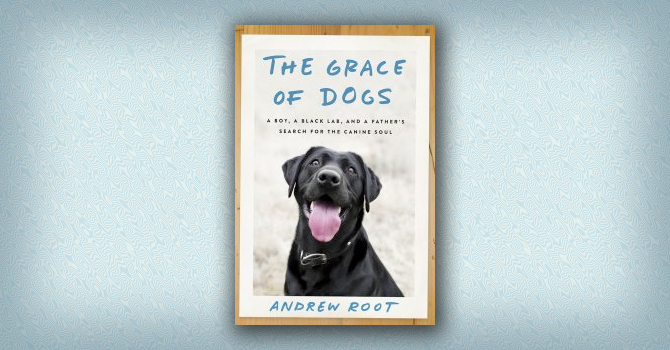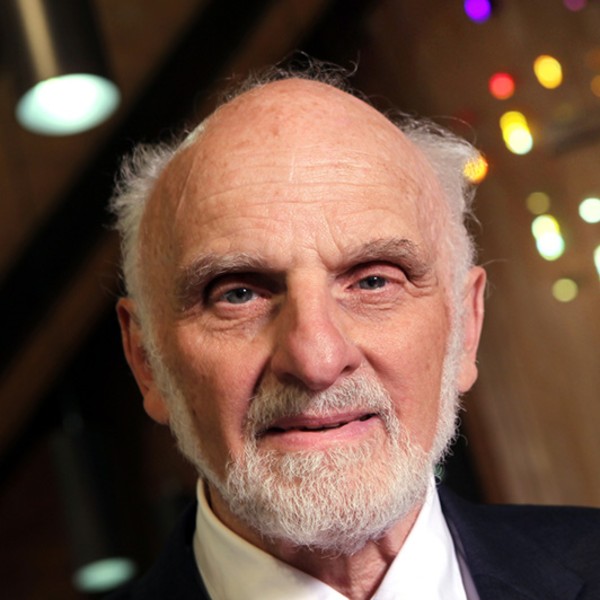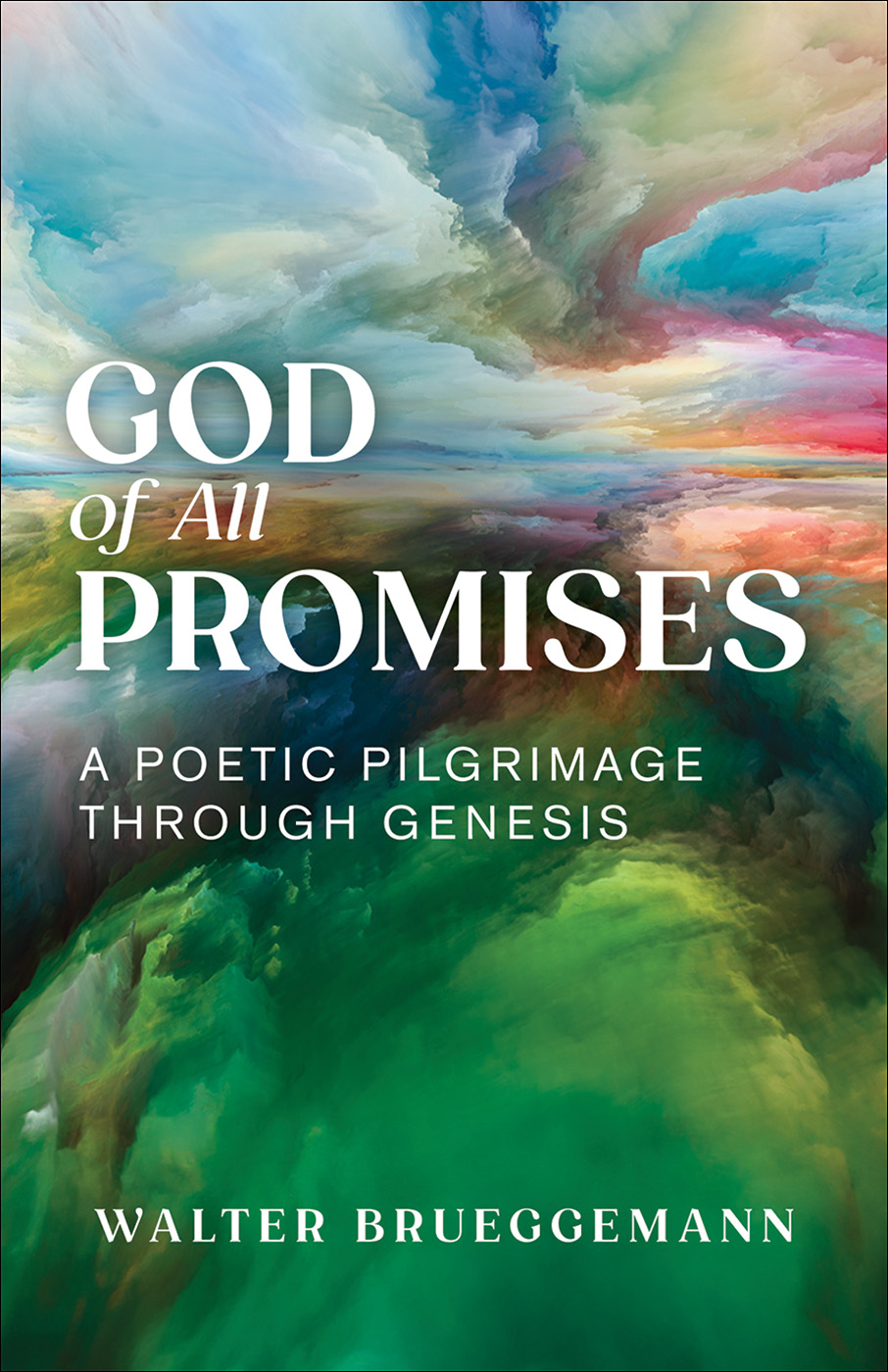What is the theological significance of dogs? Could there be something holy about them? Do they have souls? Can they feel love?
Though hardly the stuff of traditional academic theology, these and other questions took hold of Andrew Root following the death of his family’s beloved black Lab, Kirby. After three years of grappling with them, the result is his latest book, “The Grace of Dogs: A Boy, a Black Lab, and a Father’s Search for the Canine Soul,” published by Convergent Books.
“It makes sense that we would wonder if our dogs have some kind of purchase into the eternal realm, because they’ve ministered to us in many ways,” said Root, the Carrie Olson Baalson Associate Professor of Youth and Family Ministry at Luther Seminary in St. Paul, Minnesota.
In the book, Root draws upon his own family’s story and recent scientific research to reflect theologically on the relationship between humans and dogs.
“As a theologian, I don’t quite come out and say, ‘Yes, they have souls,’ but I do think that they are soulful beasts,” Root said. “And if our soulfulness is based in this interconnection and not some ghosts in our chests, then I think there’s a really beautiful analogue that our dogs do this for us.”
Root writes and researches primarily in areas of theology and youth ministry. His earlier books include “Christopraxis” (Fortress, 2014) and “Bonhoeffer as Youth Worker” (Baker, 2014).
He spoke recently with Faith & Leadership about “The Grace of Dogs.” The following is an edited transcript.
Q: To start, what’s an academic theologian doing writing a book about dogs?
Part of the existential journey of the book is, “Should I be writing this book?” -- and meeting colleagues at the American Academy of Religion or friends in Ph.D. programs asking what I’m working on and, under my breath, saying, “You know, a book about dogs.”
It was a bit of a humiliation.
But timewise, as well as just sweat, I worked on this more than any book I’ve written. It took a long time to write, well over three years. It taught me that writing for a broad audience beyond ministers, pastors, theologians is incredibly hard work.
But I wrote it just because of my family’s experience, putting this dog down, and the grief that was there.
Q: Tell us about your dog, Kirby, and the scene that prompted you to write the book.
Kara and I got Kirby just weeks after I started the Ph.D. program at Princeton. He was my theological muse in many ways, lying at my feet throughout my Ph.D. program while I was writing my dissertation. We always wanted to get a Lab, and we stumbled into a pet shop and found ourselves going home with a dog.
All the other theology nerds named their dogs Schleiermacher and Calvin. I decided to name my dog Kirby, because I had grown up here in the Twin Cities, and Kirby Puckett was our boyhood hero, for anyone who grew up in the late ’80s and ’90s in Minnesota. In the oddest kind of way, he made us a family.
After about two years, Owen, our oldest, came into the world, and Kirby transitioned. He was no longer our dog but our kids’ dog. They loved him, never knew a moment without this dog. Kirby slept every night at the foot of Owen’s bed, if not on his bed, and they were the closest friends.
Then Maisy came into the world about two and a half years later, and it was the same. Kirby was always there for her. He had this deep connection with these kids.
He had organized my life in a certain way. There’s this interesting way that dogs ritualize our lives and get us out into the world.
As Kirby became 11, there were a few weeks that he just wasn’t moving. Kara took him to the vet, and the vet said, “This is the end. There’s a mass in his stomach, and he shouldn’t be moved.”
So Kara left him at the vet’s office and picked me and the kids up to say our goodbyes to Kirby. When I went into that examining room, I was amazed at the grief I felt. Kirby’s back leg was already shaved to take the injection, and the kids came in and just threw themselves on the dog and were wailing and crying.
Then the vet came in to give him the injection, and Owen, who was 8, put his face down on the floor, nose to nose with Kirby, and said, “The last thing Kirby’s going to see is me.”
And then the injection went into his back leg, and you could just see the life leave this dog that we had loved and who’d been part of our family.
I was shocked at the anger, the real grief and anger that this dog, this being that I had loved, was gone. The kids sobbed and sobbed and sobbed, to the point that the dog’s snout was wet with their tears.
Then in the middle of this, Owen stood up and said, “I’ll be right back.” He went out and got a cup of water and came back in the room and, completely of his own volition, put his finger in the water and made the sign of the cross on the dog’s head and lifted his hands to heaven and gave this dog back to God.
The book really is a journey on “Why did that feel right?”
It’s not something we usually do, a liturgical exercise on a dog, but there was something about it that felt right. So it’s a theologian’s thrust into this moment -- a common but deep experience.
Q: The book says that in the weeks following Kirby’s death, you wondered, “Could there be something unique, maybe even intentional and holy, about dogs and their place in our lives?” How did you answer that?
You go on this journey. You try to tell your colleagues what you’re working on, and you think, “Can I, really?”
But there’s something here, something deep, and my kids grieved so much. Owen was putting up little signs on his bed, “My Best Friend Kirby,” memorializing him. I wanted to do this.
I found myself on Amazon looking at science books about dogs and soon had $150 worth of dog books -- at the time, for no particular reason -- being delivered to my house, and I started reading.
And I stumbled into this conversation that’s been going on. For only a couple of decades, scientists have been really looking at dogs. I guess they figured before that dogs were too common and ordinary to be fodder for scientific reflection. But lately, people have decided that there’s something unique about dogs and that we have to study them.
There was a quote from a famous zoologist and cognitive ethologist, Konrad Lorenz, who has this little book about dogs. He says the connection between the human being and the dog is so deep we must call it “spiritual ties,” something to that effect.
He just makes that statement and goes on to his scientific work. For me, reading that line was like 3-D coming off the page. What does he mean, “spiritual ties”?
That thrust me into this. And what I discovered from the science is that dogs have a deeply innate ability to look at human faces. Their communication ability is phenomenal; it even outstrips apes.
Dogs understand gestures. When a human being points, you don’t look at the finger; you look at the thing the human being is pointing to. Great apes and chimpanzees can be trained to learn this, but they don’t know it innately. Researchers discovered that 6- to 8-week-old puppies can do this -- and wolves can’t even do it.
There’s something profound, with deep spiritual connections that revolve around communication, that dogs are innately wired for. It comes back to our faces. There’s this deep way that they read our faces, that they know our emotions through reading our faces.
So I’m trying to mine theologically the significance of that -- about relational connection and what that means for us spiritually and theologically. Is there a way that dogs are an analogue to some of that, an animal that points to some of that deep relational connection?
In that sense, they’re soulful animals, because they really do connect with our being through this communication, this face-to-face interaction that does something to us. We feel like dogs are empathic toward us.
Q: You say there’s almost a shared evolution between dogs and humans. Speak some about that and the role of kindness in that evolution.
There isn’t a time where people didn’t have dogs. Maybe I’m surmising here, but there’s a sense that dogs helped us into our humanity, from an evolutionary perspective, and there’s something about kindness to that.
Scientists have done this incredible work on silver foxes in Russia, and they’ve discovered that [in the process of domestication] they can change really quickly. Within 20 generations, they can change body type and color even; their ears flop over and they start to bark.
There’s something about being near the human spirit that made some deep evolutionary change in these animals. What’s unique about dogs is that [probably] we didn’t domesticate them but they domesticated themselves. They started hanging around us, and we chased away the mean ones and kept the nice ones, and then those bred into what we have now as dogs.
I wonder if what dogs actually do for us through kindness is to sit by our side and allow our minds to enter into more contemplative spaces, to really reach for transcendence. You have a dog who sits beside you and watches out for you while you daydream and think and allow your mind to go fluid.
It’s complete speculation, but it’s a beautiful thing to think about. If the theologian Robert Jenson is right, we’re the praying animals. It’s beautiful to think of another animal sitting next to us watching out for us so that we can pray, so we can be these praying animals.
Also, Robert Bellah thinks that the evolutionary origins of religion are empathy, bonding and play. So I try to sketch out how dogs have been fundamental for us in our Western busy, globalized world in helping us play and bond and connect. But that may reverberate all the way back to the core evolutionary origin of our spirituality.
Q: You said earlier that dogs are soulful. Do you think dogs have souls? Are dogs spiritual beings?
I want to answer that like a theologian, which is, of course, “Depends on what you mean by soul” -- which probably makes people’s eyes roll. Here, I’m inspired by the philosopher Emmanuel Levinas, who thinks it’s the face-to-face encounter that opens up an infinite encounter and draws us into the transcendent.
If a soul isn’t some kind of substance inside our chest, or, as Descartes thought, maybe a gland inside us (he actually opened up his wife’s dog looking for the gland of the soul, which is a gruesome story, and -- spoiler alert -- he never found it) -- so if “soul” isn’t a gland or a ghost inside your chest but is actually this deep face-to-face interconnection, then I think it is possible to say that dogs are at least soulful; they connect with us in this very face-to-face way.
It makes sense that we would wonder if our dogs have some kind of purchase into the eternal realm, because they’ve ministered to us in many ways. They’ve stood beside us when we’ve lost our father and cried, or when we’ve gone through a divorce. Or they were incredibly sensitive to the child with disabilities -- the autistic child who is agitated and then the trained chocolate Lab stands next to him and brings him back into a calm state of love and harmony.
As a theologian, I don’t quite come out and say, “Yes, they have souls,” but I do think that they are soulful beasts. And if our soulfulness is based in this interconnection and not some ghosts in our chests, then I think there’s a really beautiful analogue that our dogs do this for us.
Q: Can they feel love?
I make this argument that it’s a two-way street, this relationship. It’s one thing if we transfer onto them and project onto them that they love us but really they just want to get soft beds and table scraps.
Q: That’s what a colleague tells you early on, when you’re thinking about writing the book.
That’s right. He tells me that all his dog cares about is grilled chicken, and that if it was between him and a piece of grilled chicken, the dog would take the grilled chicken every time.
But I think there is a mutual thing, this two-way street. And the science seems to be showing that. Gregory Berns at Emory did functional MRIs on dogs awake and conscious and took pictures of their brains [as they responded to their human handlers]. At least from a neurological perspective, the same areas that light up in human brains when we think of people we love also light up in a dog’s brain.
Love is such a multivalent perspective that transcends the material. But at least from the material perspective, dogs respond [to us] the same way we do to thoughts of love. And anyone who has really had a dog -- and I don’t just throw this word away, but really had a dog who was there to minister to them -- would feel like this was a two-way street of love.
So yes, I think that dogs love us, and that, too, has all sorts of spiritual connotations.
Q: What, ultimately, is the grace of dogs?
There is just this incredibly unique gift of a dog, of a dog’s love, that comes without any sense of needing to earn it. Maybe there is something in their vulnerability and their inability to have an extended consciousness but yet to connect to us in this face-to-face way, where they respond to our communication, that allows them just simply to care for us, to simply love us.
The dog doesn’t know how many degrees you have or if you got promoted at work. The dog probably doesn’t even know you work. The dog has no idea how much weight you’ve gained or how much weight you’ve lost. The dog simply thinks you’re great -- that the human being, the human spirit, is something to be around and to be with.
Which is what all these scientists are saying. A dog’s greatest survival strategy is finding human beings and loving human beings and being loved by human beings. It’s really hard to find a dog in the world who isn’t connected to a human being. There are some here and there, but for the most part, they say that if a whole country of people were wiped out by the zombie apocalypse and there were no more people there, what a dog would do to survive is to go on a journey to find a person to be with.
There’s something filled with grace in that. There’s just a basic pure desire to be with and to appreciate and to celebrate. So when you come home after a long day and your dog’s there joyfully jumping to see you, there’s a grace there, a simple grace that’s not earned, that’s just a gift.









